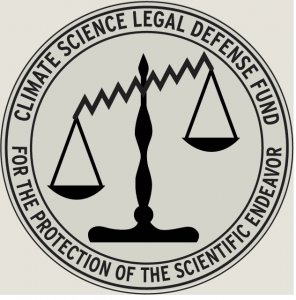April 13, 2017
MARCH FOR SCIENCE: KNOW YOUR RIGHTS
Posted by Timia Crisp
Editor’s Note: This blog post was cross-posted from the Climate Science Legal Defense Fund blog.
By Climate Science Legal Defense Fund
 The Climate Science Legal Defense Fund (CSLDF), an official partner of the March for Science, has released an educational pamphlet, “March for Science: Know Your Rights,” to help science advocates ensure that their march-related activities are constitutionally protected.
The Climate Science Legal Defense Fund (CSLDF), an official partner of the March for Science, has released an educational pamphlet, “March for Science: Know Your Rights,” to help science advocates ensure that their march-related activities are constitutionally protected.
The pamphlet is available as a free download to print and share. We’ll also mail bulk copies free of charge to academic departments, organizations, and individuals to distribute; use this form to submit your request.
CSLDF supports science advocacy and wants to prevent those engaging in it from encountering problems or legal issues. The pamphlet, authored by CSLDF attorneys, with contributions from the American Civil Liberties Union (ACLU), contains vital information for both new marchers and seasoned veterans about the right to demonstrate and how to stay safe while organizing or taking part in marches.
Three key takeaways from the pamphlet:
- Advocate as a private citizen, not for your employer
- When marching, don’t wear work paraphernalia; do bring cash, ID, and medication; memorize essential phone numbers
- Be prepared for the improbable (encounters with law enforcement)
We encourage anyone planning to participate in the April 22 March for Science, April 29 People’s Climate March, or other public demonstration to read and distribute the pamphlet; more informed science advocates will result in safer, more successful marches.
To learn more about how scientists and other academics can avoid harassment, check out our publication, “Handling Political Harassment and Legal Intimidation: A Pocket Guide for Scientists,” and tips for engaging in science advocacy. Join our mailing list to receive updates about more titles in our growing series of resources for scientists and other science advocates.
This pamphlet concerns U.S. laws only and does not constitute specific legal advice. If you have legal questions regarding a particular circumstance, please call your lawyer or contact us directly by emailing [email protected] or using our web form.
Thank you to the ACLU for guidance in creating this pamphlet, and for allowing us to adopt parts of their publications.








